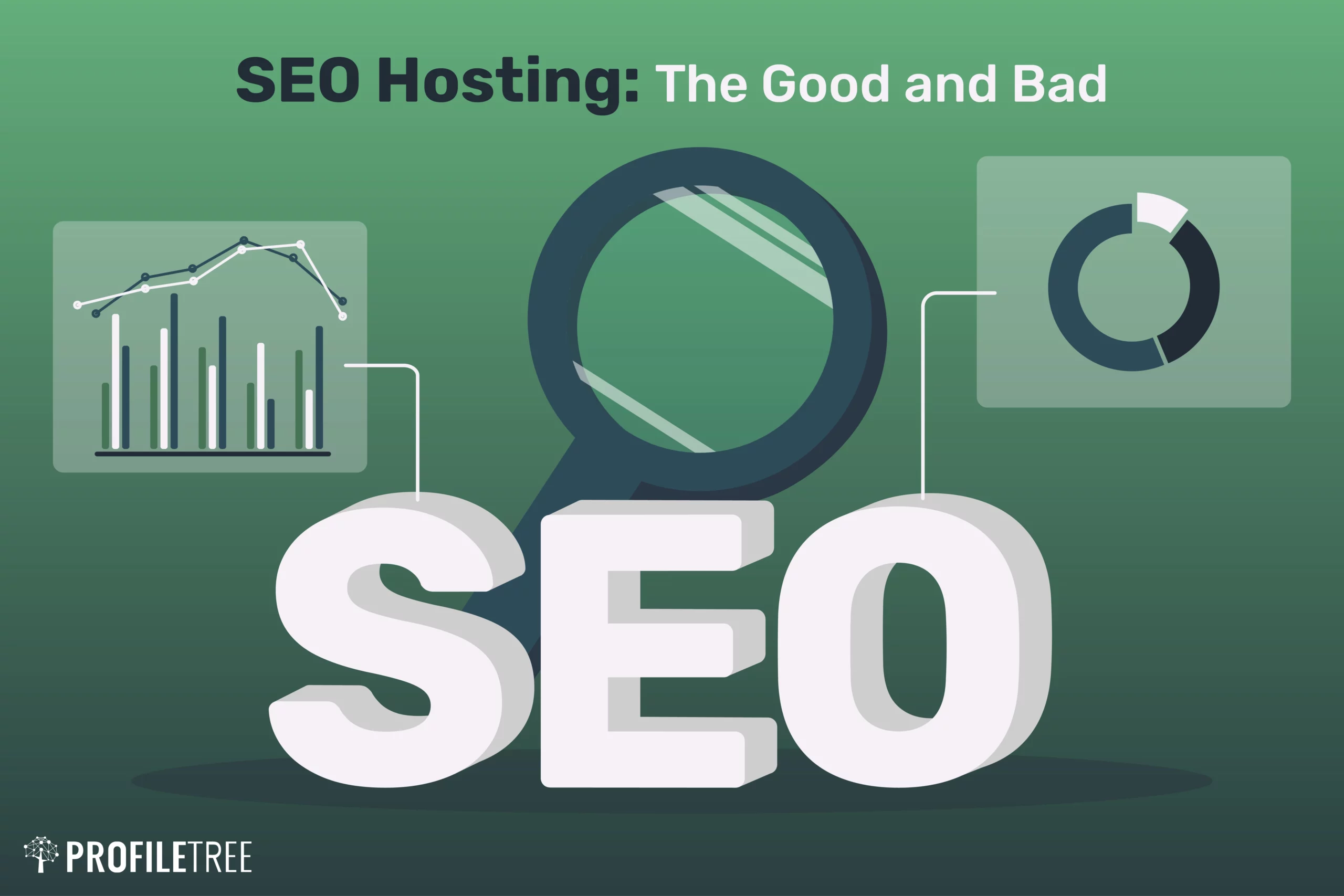Say you’re an established online marketer. You’ve researched and built a sizeable online marketing presence with high-quality blogging. Maybe you’ve also ensured that your search engine optimization is spot on. Kudos are in order, and you’ve earned your digital keep thus far.
But there’s one thing that you might be a tad oblivious to when it comes to your SEO and brand awareness. You haven’t looked into SEO hosting. And you’d be forgiven; it’s kind of a strange concept.
Having an open mind regarding new concepts that may aid your quest for online dominance is a key condition for success in digital marketing. And with just a bit of your time and brainpower, you can decide whether or not SEO hosting is of any benefit to your online marketing strategy or if it’s another gimmick.
Table of Contents
What is SEO Hosting?
You might be asking yourself this, and that’s OK. It’s not exactly common knowledge, and its concept is pretty technical. Let’s go over the broad strokes.
SEO Hosting, also known as multiple C class IP hosting, is one of many methods you can employ to improve search engine optimisation and expand your web presence and revenue.

The idea behind it is to assign unique C-class IP addresses to every one of the websites you have under your main website’s virtual umbrella.
Anyone in the online marketing field long enough will know that appeasing Google and its search engine results pages is the driving force behind your online marketing efforts and, ultimately, your revenue.
What is a Class C IP Block?
Now, there’s no need to flip any tables just yet. To understand what C Class IP blocks even are, why not understand what an IP is in the first place? Better take notes.
Internet Protocol addresses are just what they sound like; they’re computer addresses that lead search engines and browsers to where your blog or website(s) are. Think of it as your house address.
But there’s more to it than that for the metaphorical pizza man to find your hypothetical place. An example or two are in order:
Exhibit A: 54.57.201.175
Up there is a standard example of what your garden variety IP looks like. It’s four groups (or blocks) of numbers ranging between 0 and 255, separated by three dots. Each group in an IP address is typically classified according to their position and arranged in alphabetical order. Looking something like this:
Exhibit B: AAA.BBB.CCC.DDD
Starting to get an idea of the bigger picture now, right? Without getting into too many details, suffice it to say that class A blocks are huge but fairly small in number. While class C blocks are small but numerous, think of them as neighbourhoods:
Exhibit C: 54.57.201.175 is in the same neighbourhood as 54.57.201.202
Get it? The C block is an apartment block; those in the same C block as you are your happy-go-lucky neighbours. And the D block is each apartment.
Hosting your websites and relevant blogs on the same server within a data centre means they all share the same C block IP, just different D blocks, meaning they’ll be easily grouped as related sites in the eyes of any modern search engine, chiefly Google.
Google and most other search engines, such as Bing, don’t take kindly to “related” sites linking back to each other, a phenomenon not so lovingly termed “link-farming.” They might even hide their entries in search engine results pages’ algorithms and might go so far as to penalize your main website if it finds out that you have too many nesting in the same C block IP.
So, in response to Google’s valorous efforts to clean up the Internet from any shady dealings, some industrious folk out there in the wild dystopia that is the Internet came up with the idea of SEO hosting.
By offering the would-be online marketeer various unique C block IPs for each of their sites and related blogs, they evade the scrutiny and wrath of Google. Effectively covering their tracks and theoretically increasing their main site’s click-through rate utilizing backlinking.
Web Hosting and SEO
Now that the “science” is out of the way, what does all of this mean to you, the ambitious online marketer?
Simply put, having multiple relevant websites link back to yours in an organic enough fashion means that more people can jump from one link to another and eventually to your main site. This increases your brand awareness and market presence with an appropriate plan from a reliable SEO hosting company.
There are packages available tailored to your needs and goals from each company. Do bear in mind, however, that many of these companies advertise that their service can boost your SEO.
The reality is that a high-quality SEO strategy, engaging content, a strong relationship with your audience and well-thought-out planning ultimately give your SEO its muscle.
These services don’t directly alter your SEO, nor do they negatively affect it. They supposedly just boost exposure and mitigate any possible damage you might have coming your way following more traditional web hosting ideas.
This all sounds good on paper, but before you get out there looking to rent a dozen unique IPs, why not weigh the possible pros and cons of SEO hosting in a purely objective light and get a more well-rounded picture of the matter? Better safe than sorry.
Benefits of SEO Hosting

Though it might sound like kind of a shady practice, SEO hosting has a few merits worth looking into if you’re pooling all your efforts and resources into anything that might have an impact on your site.
Avoiding Google’s Wrath
Just as we mentioned before, Google and other leading search engines do not like it when you have multiple sites hanging out in the same C block. Their ranking and security algorithms, among other aspects of how they function, have come a long, long way since the olden days of search engines.
They now primarily look at the first link in the block and view every other site in the block as anything from potential malware to spam to pornography, and in turn, remove them from search engine results pages or block them entirely.
So it makes sense that putting your various websites and blogs on different C-class IP blocks would prevent this.
This gives every one of your sites its independent ranking from your main site, furthering your brand’s reach and potentially boosting revenue.
SEO Hosting for Global Reach
Say you want to market your wares to a specific geographical locale—targeted at a specific demographic in a faraway area.
Seeing as Google tends to rank websites according to the geographical location of their IPs and sorts them out in those locations according to how relevant your content is, SEO hosting offers a solution where you can host certain IPs on a separate server either within the area you’re aiming for or nearby.
What this does is boost your brand’s relevance in that area’s search engine results page’s ranking—making your brand more relevant and valuable in that specific geographical location.
This is referred to as an international search. The same concept can be applied to local IPs to garner more attention to your content in local search engine results pages.
SEO-Friendly Hosting Options
Realizing that some of the practices that SEO hosting can come off as kind of odd, to say the least, some companies decided to try and develop an alternative to playing hide and seek with Google and its spiders.
These SEO-Friendly web hosts offer services geared more towards making your website a bit more search engine friendly in many ways, offering reliable uptime and keeping your sites relatively high up in search engine results pages.
Additionally, these give you some special SEO trimmings to aid your sites’ visibility, such as using unique meta tags that efficiently mask what your pages are all about from invasive search engines.
Utilise Multiple Hosting Options
Say you have an impressive collection of products and services, and you have enough sites for each and every one. You want them all to link back to each other and to your mother site to gain proper exposure.
This is when having multiple C class IPs shines. All your sites are legitimate, and your brand is assured. It’s only natural for you to want your loyal customers to certain products to find out about other products under your ownership.
Increasing your revenue and the rank of every website you control can achieve so much on search engine results pages.
Dangers of SEO Hosting
There are two sides to each coin. And oftentimes, you’ll find that one side is kind of darker than the other. SEO hosting might offer some real benefits to the industrious online entrepreneur. Still, it also carries some inherent risks you’d do well to consider and factor into your decision-making.
Association with Black List Content
Remember the whole “Google is an all-powerful being that constantly scours the entire web searching for bad eggs” thing? Well, Google hates it when it finds a C block known for shady dealings.
This includes things like pornography or malware. Entire C blocks have been dedicated to seedy practices that only serve to anger the all-seeing Googly eye.
And even though it’s rare, Google has been known to block entire C blocks if the numbers add up permanently. And there’s little telling on your part if any of the C blocks SEO hosts peddle are legitimate or not; they don’t exactly include it in the contract.
This kind of ties into the whole “Not putting all your sites in one C block” thing. If the majority of the elements within that block are bad, there go your precious web spaces.
Using tools like Majestic’s Neighborhood Checker is a good idea when deciding on these matters since even one bad seed can force Google to drop the hammer on your site.
The Cost of SEO Hosting
Weigh the financials here for a moment. Running your little online empire on a standard shared web host might put you at risk of being in a seedy neighbourhood or having Google give you the stink eye. But it’s ultimately cheaper.
Running a bunch of unique C-class IPs, on the other hand, carries all the benefits previously stated. But it also costs a considerable amount more.
Some argue that renting different C-class IPs from different shared web hosts in varying locations is a cheaper alternative, which may hold some weight. But what is certain is that C-class web hosting will cost you a shiny, shiny penny.
False Advertisement
A lot of SEO hosting companies have this unsavoury habit of marketing their unique IPs as the be-all-end-all solution to your websites’ rankings on SERPs, marketing it to business owners, small and large.
It’s hopefully obvious by now in this article that SEO hosting only works with medium to large businesses with multiple sites up and running and linking back to each other.
But an individual or a small business doesn’t reap as much benefit as the companies try to convince them. So it’s worth considering this before buying a package. There’s also the fact that many SEO hosting companies tend to buy and sell expired domains, and the reliability of their hardware is almost always suspect.
You might not give it much thought, but if your site were to go down for a mere few minutes, you’d notice a sizeable loss in interest because people tend to remember how buggy a site is.
SEO Hosting: Takeaways
SEO hosting, like all things in life, has its enticing and unsettling aspects. A lot of people view it as a shady deal. Others think it’s a saving grace to their online marketing relevance. What it falls to is whether or not you think it’s worth the investment.
Hopefully, after reading this article, you understand the risks and rewards. Ultimately, what matters when it comes to SEO is the quality of your content, and they know how you should get about SEO in general.
Top SEO Hosting Providers
Some top providers include A2 Hosting, Bluehost, Cloudways, and InMotion Hosting. Find plans optimized specifically for SEO.
Look for up to 20X faster page loads, SSD storage, free CDN, dedicated IPs, and integrated caching.
Migrating to SEO Hosting
Work with your new provider to migrate seamlessly:
- Point your domain to their nameservers
- Use 301 redirects to preserve URL equity
- Upload site files and databases to a new account.
- Update DNS records
- Monitor progress in Search Console and analytics
Additional Performance Optimizations
Beyond core SEO hosting optimizations:
- Enable GZip compression
- Minify HTML, CSS, and JavaScript
- Concatenate assets
- Optimize images
- Integrate a CDN
Every bit of speed counts.
Frequently Asked Questions
Q: How much does SEO hosting cost?
A: Plans start around $10/month for basic needs, up to $100+ for advanced features. Shop plans to find the optimal value.
Q: How long does it take to see results after migrating?
A: You should see faster load times immediately. Ranking improvements can take 2-3 months as signals update.
Q: What is the page speed I should aim for?
A: Sub-200ms is ideal, with 100ms or faster being extremely fast. Use tools like Pingdom and WebPageTest to measure.
Q: Do I still need caching plugins?
A: Quality SEO hosting will have caching built-in, but additional layers like Redis can further improve performance.
Conclusion
SEO hosting optimizes technical infrastructure specifically for ranking gains. With faster page speeds, managed caching, and dedicated resources, it provides a performance boost over shared hosting.
Migrating takes some effort but pays dividends long-term through increased organic visibility—partner with our team to execute an optimized migration and infrastructure. SEO hosting is a smart investment for brands serious about search performance.


